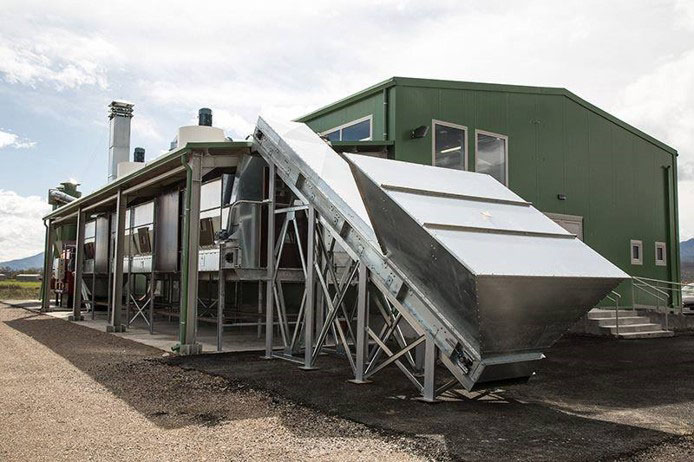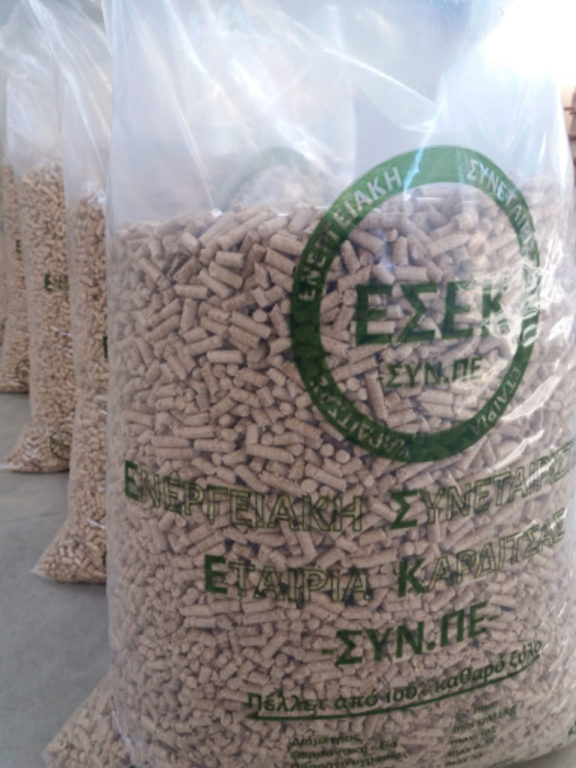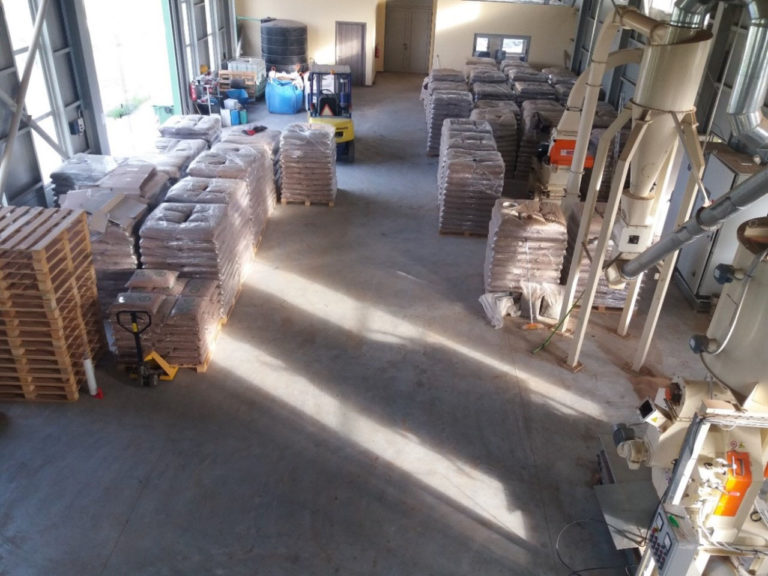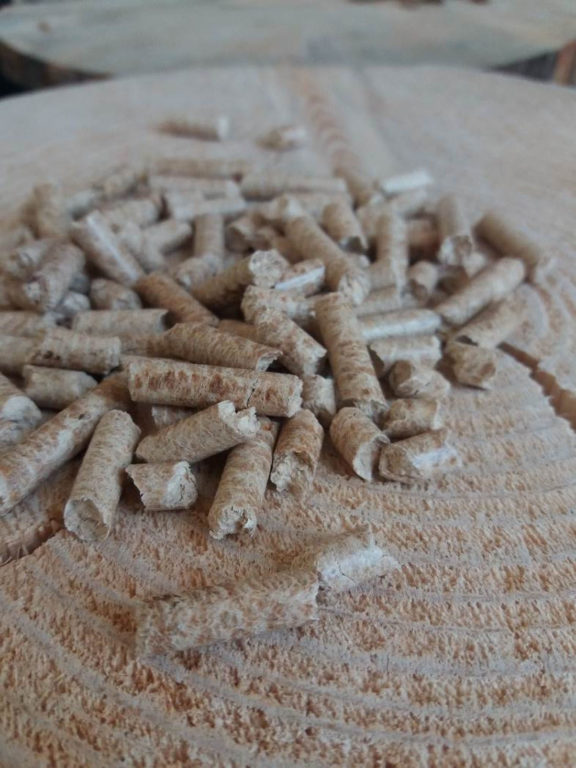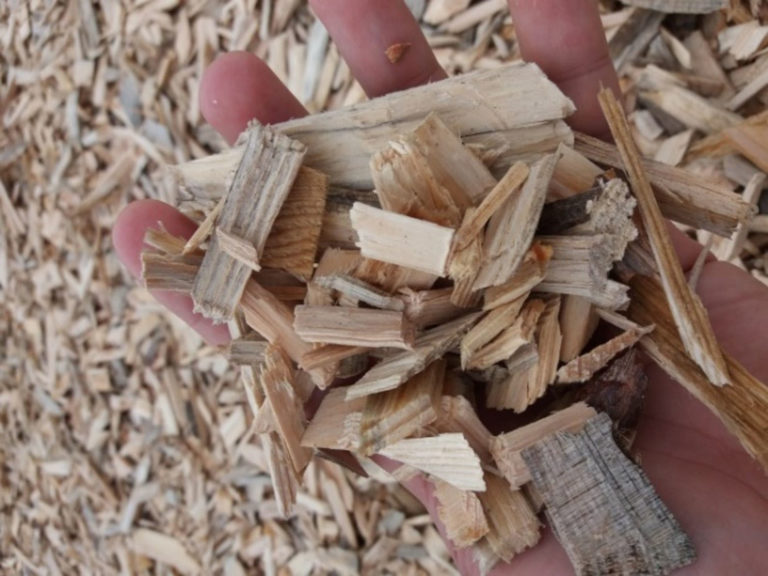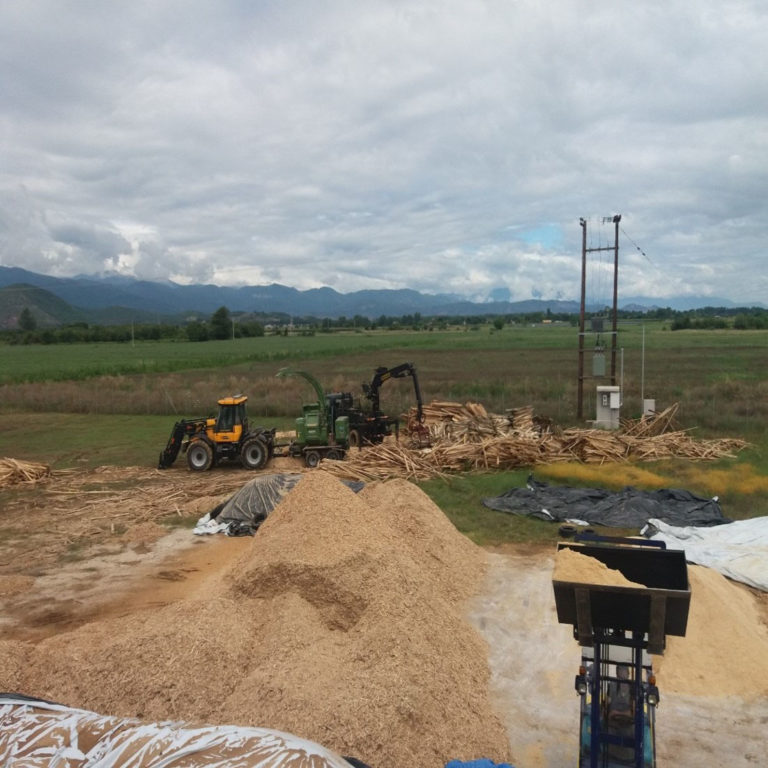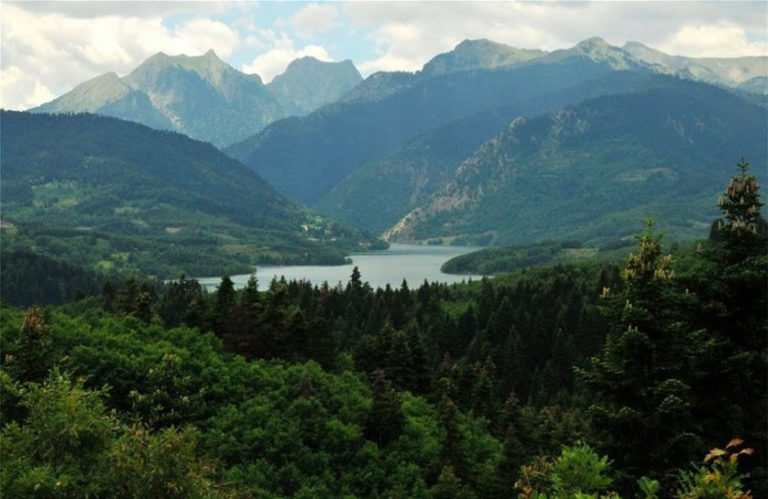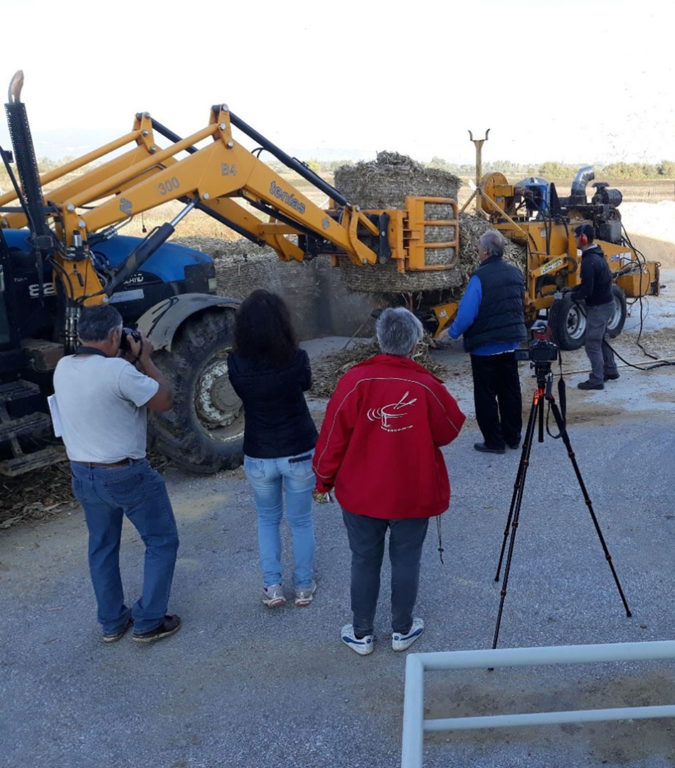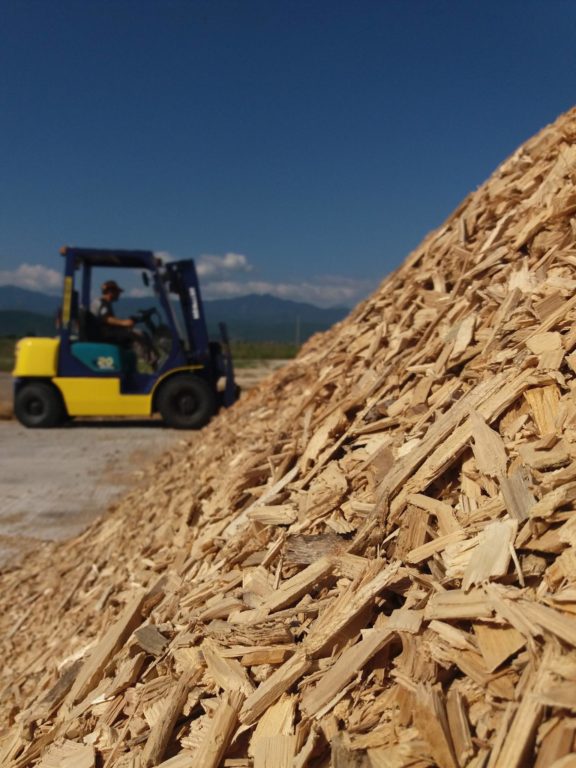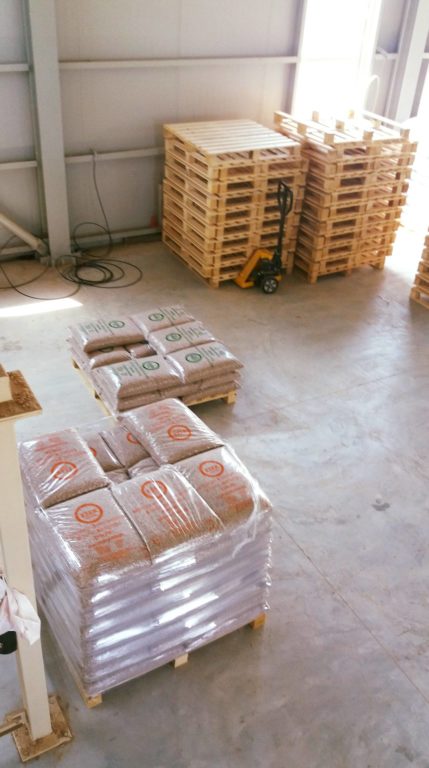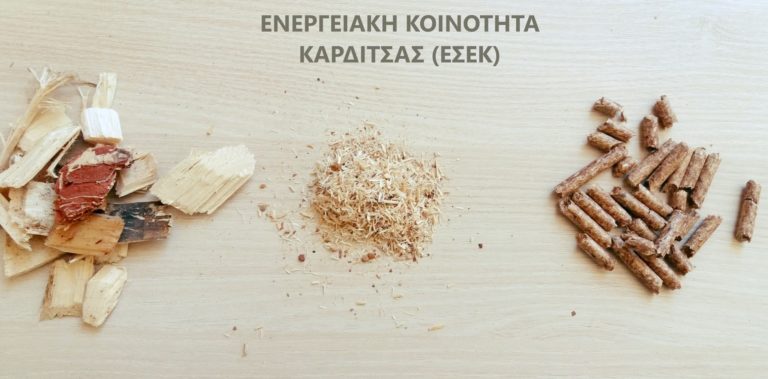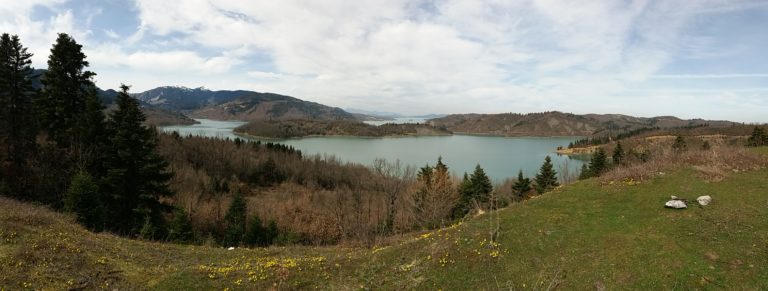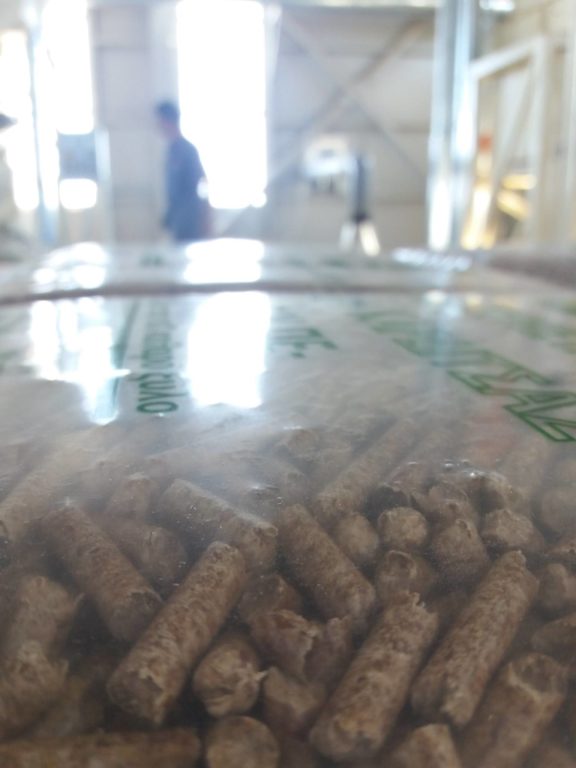Showcasing how a RESCoop that already has a biomass supply chain can combine this activity with community bioenergy generation plans.
In 2023, ESEK is now producing pellets from coffee residues and distributing some to vulnerable households. The RESCoop engages citizens to show how renewable energy communities can be a tool for more energy democracy. They also engaged with a new project to produce solar energy, with Greenpeace.
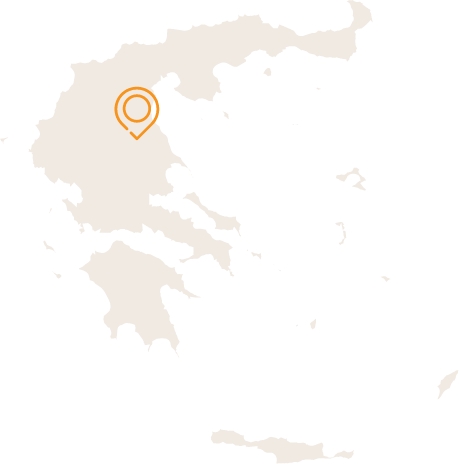
General and regional characteristics
ESEK – ENERGEIAKH KOINOTHTA KARDITSAS SYNPE operates in the region of Thessaly, an area with strong agricultural production. It was established in 2010 as a profit citizen energy cooperative to foster renewable energy in the region. In 2019, the energy cooperative was converted into an energy community, with over 400 members, including municipalities, SMEs and local associations. The Regional Unit of Karditsa is one of the four prefectures in the Region of Thessaly, 2.636 Km2 of which lowlands cover nearly half of the area, while the other half is mountains and semi – mountainous areas. ESEK collaborates with 6 local municipalities (members of the RESCoop) and local technological education institutions in the field of solid biofuels production and quality control to match European standards. As regards the energy profile, the Regional Unit of Karditsa has a great potential of Renewable Energy Sources (RES). The natural resources of the area are rich and suitable to the energy production.
Current heating / renewable energy situation
The continuous expansion of the local fossil fuel network threatens the uptake of RE heating solutions such as biomass boilers. At the same time, the region has a great biomass supply chain potential through agricultural, forestry and wood processing industries that can easily support the uptake of bioenergy technologies. While, until recently, local governments had little authority on their heating and energy markets, in 2018, the Greek government voted a law that changes this vision and urges local municipalities, companies and citizens to partake in RE production. The main activity of the energy community is the management of a biomass plant for the production of solid biofuels to generate energy for heating (and cooling) purposes. The raw material consists of industrial residuals (sawmills) such as sawdust woodchips, logging residues such as branches, tops and stumps, coming from Forest Cooperatives. Partnerships with local authorities allow the Energy Community to expand the supply chain with plant biomass coming from Municipal waste (branches and tops of city trees). To complete the plant, a manufacturing unit processes and standardizes local biomass and converts it into a commercial form, such as pellets.
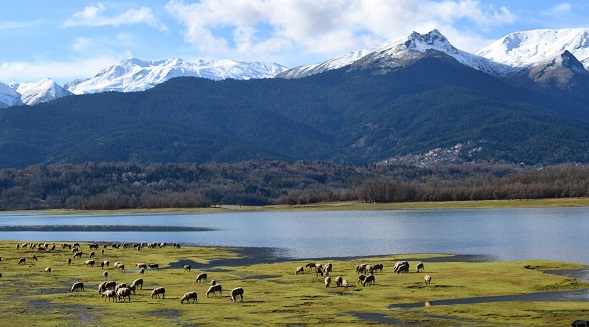
Scenario to be tested
Expand the biomass supply chain and extend the activities to bioenergy production. ESEK will investigate how the existing pelleting plant can be used to expand the RESCoop activities and combine them with the uptake of a local bioenergy heating community.
What BECoop brings
Address local low public concerns for bioenergy stemming from bad practices of industries, low awareness on biomass technologies and on the real benefits and costs of energy sources. Collaboration with other institutes.
Contacts
Vasileios Filippou, Energeiakh koinothta Karditsas (ESEK) info@esek.gr / vafilpo@gmail.com


